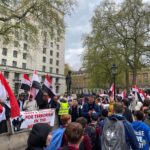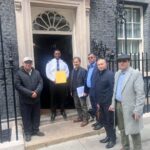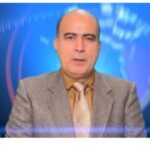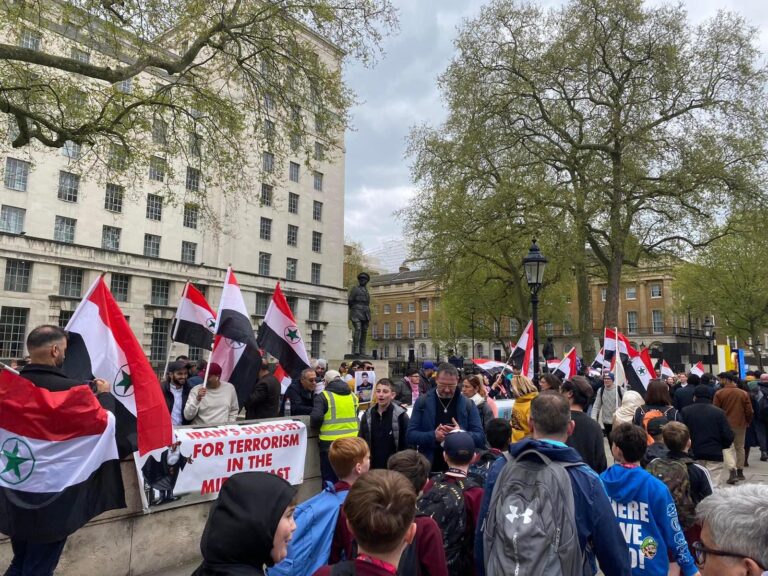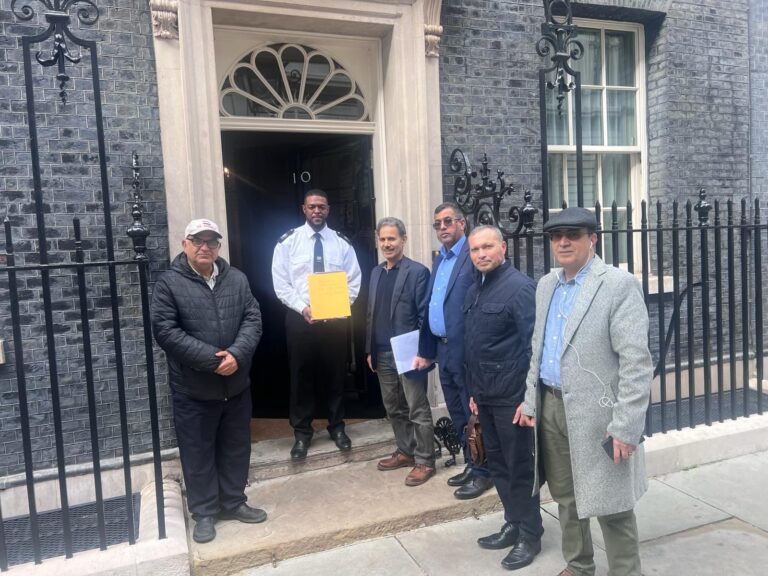The Democratic Solidarity Party of Ahwaz, Why Now?
The Democratic Solidarity Party of Al-Ahwaz (DSPA) is a secular, non-violent organisation aiming to bring about democracy and social justice for the Arab people of Al-Ahwaz (Arabistan/Khuzestan) in Southwestern Iran. The DSPA seeks to end the current dictatorship in Iran and establish a democratic political system that respects the human rights and recognises the right of self-determination for all unrepresented peoples in Iran. These include the Ahwazi Arabs, Azerbaijani Turks, the Kurds, the Baloch, the Turkmen, and others.
The founders of the DSPA held the party congress in London on July 17-18, 2003, and ratified its political platform and manifesto aimed at achieving the aforementioned objectives.
Background:
- Period from 1925 through to the Islamic Revolution in 1979.
The Arab people of Al-Ahwaz are in a highly complicated and difficult historical period, which is a product of an unprecedented national oppression that they are subjected to.
This oppression began in 1925, when the Arab sovereignty of the region was destroyed and subsequently replaced by the despotic and the racist regime of Reza Shah. The then Western colonial powers supported the new centralised and strong Iran so that it could act as a shield against the spread of communism to the warm waters of the Gulf and the Middle East. Thus, the savagely ambitious and chauvinistic ideology of Reza Shah and the colonial interests and aims of the western powers found a common ground at a highly strategic juncture in time.
This set Al-Ahwaz forth on an unfortunate course in which the Pahlavi regime attempted to dominate Ahwaz by sheer force without taking into consideration the wishes of the Arab people. It also did all it could to eradicate the national identity and cultural characteristics of the Arabs of Al-Ahwaz.
The Pahlavi regime attempted the assimilation of the Arab people into an anti-Arab and an extremist Persian ultra-nationalist agenda. By using methods such as intimidation and torture, it lowered the status of the Ahwazi Arab nation to the ranks of second and third class citizens. Thus, the legitimate hopes and aspirations of the Arab people of Al-Ahwaz for national self-determination have evaporated.
Hence, an unjust challenge and unbalanced confrontation was imposed upon Ahwazis. This calculated confrontation was the policy of the Pahlavi regime for the eradication of any signs of Arabism from Al-Ahwaz. This eradication policy included changing the historical Arabic names of cities, villages and streets, and replacing them with mock Persian names and banning the use of Arabic language in schools and governmental offices throughout the Arab region. It also involved mass exiles, land confiscations, and creating Persian settlements similar to other colonial settlements that are known in history.
The final outcome of these oppressive practices and suppression policies is the acute backwardness of our people in the political, social, cultural and economical spheres despite the fact that our region is richly endowed with oil reserves, which make up around 90% of Iran’s oil exports. The result of these policies is a sever identity crisis among wide sections of the Arab people, the negative consequences of which still dominate our area.
Neither the international community nor the Arab world supported or recognised the legitimate demands and the rights of the Ahwazi Arab people. As a result our nation was forced to use the most basic tools that were available to it in order to continue the difficult struggle for survival. During this particular historical period, our people were deprived of strong and effective political organisations. And it was for this reason that all its uprisings and rebellious movements resulted in failure. This was coupled with misunderstandings and miscalculations on the parts of existing political organisations inside and outside Al-Ahwaz.
Despite great sacrifices, our people were neither able to alter the unfortunate political situation dominant in the region, nor were they able to insert the Ahwazi cause as an undeniable element of the Iranian and regional political formula. This inability did not diminish the fact that our nation produced a great number of martyrs and prisoners.
The positive aspects of the struggles in this period was the collapse of the fear and terror barrier, which caused political and ethnic awareness among the masses, and despite the difficulties and despotic dominant political atmosphere, it kept the flame of the national struggle alive. Therefore, the banner of the battle was handed on to the next generation, and thus succeeded in achieving an important step toward the final goal.
- From 1979 through to the end of the Iran-Iraq War and the Collapse of USSR in 1991:
There were no fundamental changes toward the Arabs in the policies of the new Islamic Republic leaders, who took over Iran after the victory of the 1979 revolution. And that’s despite the fact that our people took an active role in starting and bringing the revolution to victory. Arab situations remained the same, despite the fact that the leaders of the revolution were chanting Islamic revolutionary slogans in support of freedom, social justice, the elimination of all forms of oppressions and discriminations, and in the defence of the oppressed, the deprived and for global justice.
But, as soon as the Arab people presented their rightful demands, which were in accordance with international and Islamic laws and principles, suddenly the mask of Islamic brotherhood and religion slipped from the new leadership. All our legitimate needs were denied as threats and violence were applied.
The cowardly massacre of Arab demonstrators in the ever proud and dignified city of al-Muhammara (Khorramshahr) by the Khomeini regime was the worst example of this policy. It started a new phase in our struggle – an undeserved conflict that was imposed upon our people. But our people, just as in the past, put up heroic resistance, which is a source of pride and honour.
Our nation, in the course of battle for its national goals and just demands, did not hesitate to sacrifice even the most dear and valuable of its possessions. Thus, the 1979 Islamic revolution, not only failed to fill in the gap between our people and the Iranian government, but also destroyed all the opportunities to build a bridge between the two sides. This caused the Ahwazi masses to turn away from the regime of Velayat-e-Faqih.
Confiscation and expropriation of great areas of Arab owned lands by the regime under the guise and cover of Sugar Cane Development project exacerbated the situations. The real aim of the project is to build Persian settlements in the confiscated Arab lands. This project is similar to resettlement projects that were carried out by the Shah regime, such as the “Yazd No” (New Yazd) settlement.
We also need to mention the Iran-Iraq war. During the 8-year war, the new revolutionary leaders eliminated their rivals and secured themselves the monopoly of power and the government. The Iranian regime abused the emergency war situation to impose a police state on Al-Ahwaz. Using the disastrous effects of the war as an excuse, the regime transferred a great number of the Arab population outside Al-Ahwaz and confiscated even more Arab lands. But this issue increased the will of the people for resistance and confrontation. The aftermath of the war had an active role in the ethnic and political self-awareness. The increase in the number of Arab youth entering higher education also strengthened the popular movement.
But the conclusion of the war and its aftermath, and the fact that the regime had to accept a ceasefire with terms less dignified than it thought it deserved (the late Khomeini compared accepting the cease fire with drinking a cup of poison), in addition to the regime’s abandonment of its wild ambitions of exporting the revolution, improved the moral of the Arab people and their aspiration to change their dreadful situations.
- From 1991 to the Present, Dawn of a New Era in our Democratic Struggle and birth of the DSPA:
The gigantic international and regional developments, most notable of which is the collapse of the Soviet Union and the end of the cold war have altered the global political map in a fundamental way. Thus the unique strategic importance of Iran (a barrier against communism infiltration into the Middle East) was diminished.
It was in the midst of these tumultuous events and developments that the Ahwazi national movement arrived at a historical point, and was able to realise some of its legitimate demands from the reformist government of President Mohammad Khatami.
What caused the widening of its circle of influence was the circumstances caused by the intensification of the power struggle in Tehran, the failure of the regime in achieving its stated slogans and ambitious programs, the worsening of the political and economical crisis, the weakening of governmental influence, the ineffectiveness of the security forces, and the increase in the nationalistic sentiments in the non-Persian ethnicities of Iran.
In the case of Al-Ahwaz, the following factors played important roles in the nationalistic and socio-political self awareness: the horrible decrease in the quality of civic services, the increase in poverty, increase in unemployment, growth in drug addiction, increase in pollution and the worsening of already terrible quality of drinking water, the colonial-era type Sugar Cane resettlement project by the regime of the mullahs, and the active participation of committed Ahwazi intellectuals. The above factors played an important role in the self-awakening and people’s knowledge about the rich history and culture of Al-Ahwaz, thus energising the Ahwazis politically and socially.
Hence, the ethnic self-awareness, and its reflection in the values and socio-political outlooks has become a common reference for the Ahwazi Arabs. This paved the way for the expansion of the national struggles and elevated it to a strong and solid point. All this came about as the result of people’s dissatisfaction with the regime’s oppressive policies as the status quo, which considered the disintegration of the Ahwazi Arab national identity as a fait accompli.
It must be noted that these positive and fundamental changes, although important, were, by themselves, not sufficient to guarantee the realisation of the just demands and legitimate aspirations of the Arab people for building a better future. Our national movement had always lacked the necessary means to realise the desired objectives.
Particularly lacking were political organisations with significant impact on the domestic events. This resulted in a political vacuum whose effects have been a source of misfortune for the Arab people movements in the last seven decades.
Therefore, to obtain relief from these fundamental problems and in order to eradicate the negative consequences which weakened people’s moral, and in order to utilise their potentials and not miss any possibilities and opportunities, it is absolutely necessary to establish a political democratic organisation with a solid structure, rooted in a vast daily struggle and having a practical strategy. A strategy that is reasonable, persistent, flexible and consistent.
Thus for these reasons and due to a sense of ethnic obligation, we the founders of the Democratic Solidarity Party of Ahwaz, found it necessary to establish such an organisation. The declaration of the existence of the party is a historical necessity in this fateful stage of national struggle.
The party’s ideology is in accordance with the interests and the needs of the Ahwazi Arab people on one hand, and the requirements resulting from regional and international circumstances, on the other.
Since the process of altering our unfortunate circumstances begins with a clear understanding of those circumstances, the DSPA is therefore set out to conduct detailed studies and research to understand why we are in his unfortunate situations; understand the internal and external causes, have a realistic and correct view, also a clear and active strategy that addresses the acute situations of Ahwaz on all levels; political, social and cultural, without any presumptions, irrelevant theories and ready-made models of struggles.
Party’s Objectives
In accordance with the principles stated above, the DSPA will work to attain the following objectives:
1-The party will struggle for the right of self-determination for the Arab people of Ahwaz as a natural right for choosing their political future, particularly because when Ahwaz fell under the Iranian (Pahlavi) domination (1925), our people’s opinion was not considered.
2-The party will do its utmost in the field of political education and reach out to the people of its homeland. Its aim is to organise the Ahwazi people, elevate the level of their awareness, create social and political dynamism and establish channels of communication between the citizens and the party. Thus, our people may attain the ability to comprehend the issues correctly and conduct conscious, responsive activity in answer to the challenges of struggle and the movement towards leadership.
And finally, resurrect the potentials of the Ahwazi society, which has been kept buried by oppression, deprivation, and feelings of humiliation.
3-The party will strive for the development of the spirit of collective commitment and strengthening of patriotic tendencies. The party will strengthen ethnic feelings and the understanding of unity-of-destiny in order to eradicate the effects of the chauvinistic policies of the consecutive Iranian governments in the past seven decades, which tried to destroy the ethnic and cultural identity as well as the historical heritage of the Ahwazi people.
4-The party will work for the solidarity and unity of the Ahwazis to maximise the levels of political struggle and activity both inside and outside Al-Ahwaz.
5-The party will work to ensure the strengthening of the principles of democratic values in our society.
6-The party supports establishing fundamental elements of a civil society such as cultural associations, trade unions, and professional organisations.
7-The party will work for unity among the Ahwazi parties and active organisations in order to establish a comprehensive front that has the ability to represent a broader spectrum of the Ahwazi social and political forces.
8-The party will work to establish strong links between the Ahwazi Arab movements and all Iranian progressive movements, particularly with the oppressed Iranian nationalities who have similar aims and ideals as ours.
The DSPA, in accordance with its principle beliefs, has chosen peaceful resistance as a means and methods of realising its patriotic goals and also as an uncompromising principle. We reject all forms of violence and force to realise our aims. Considering our unequal means as opposed to the ruling regime that has all the tools of suppression, employment of these peaceful means will safeguard our nation of misfortune and bloodshed. Therefore the party has chosen demonstrations, strikes, and other peaceful forms of protests as its method of struggle. These forms of protests, if not fruitful, may necessitate a call for civil disobedience.
Hence, the DSPA has been formed as an absolute necessity and a product of a deep understanding of the fundamental domestic and international changes, as well as the political experiences of our people in the last seven decades. The DSPA was founded to lead the ongoing struggles of our Ahwazi Arab people at this juncture in history.
Therefore it is our hope that our party’s campaigns in the future will address the needs and aspirations of Ahwazi people. We see ourselves as the right vanguard to represent our people and channel their issues along the correct path in order to reach internal consolidation and provide relief from political and social oppression.
We deem it necessary to emphasise that we do not claim to be without errors or shortcomings, or that what we have stated in our manifesto is the final word on the Ahwazi cause. It is rather an intellectual-political effort which is open for discussion, correction and change so that it may be of better service to the just cause and higher interest of our nation.


